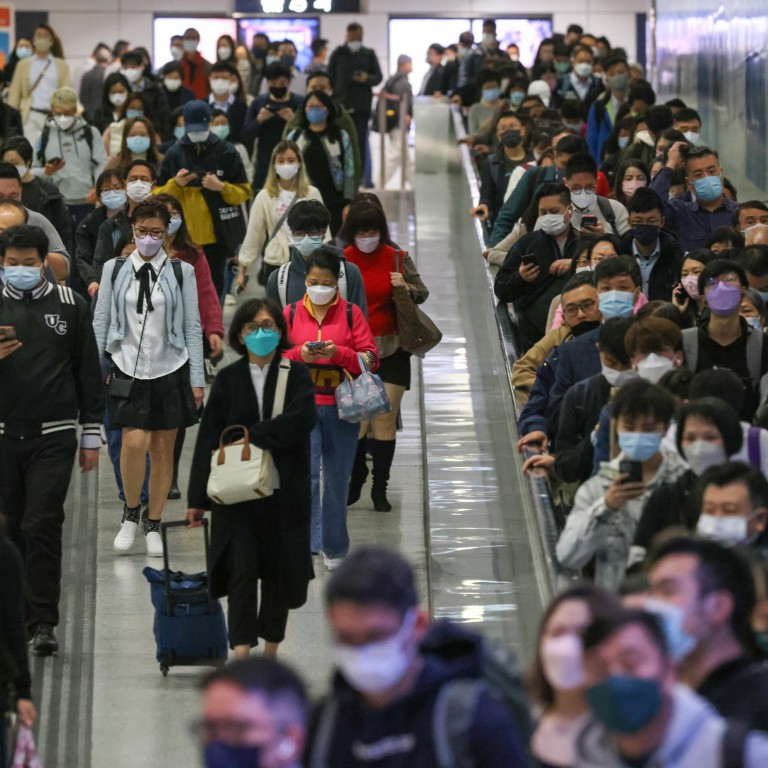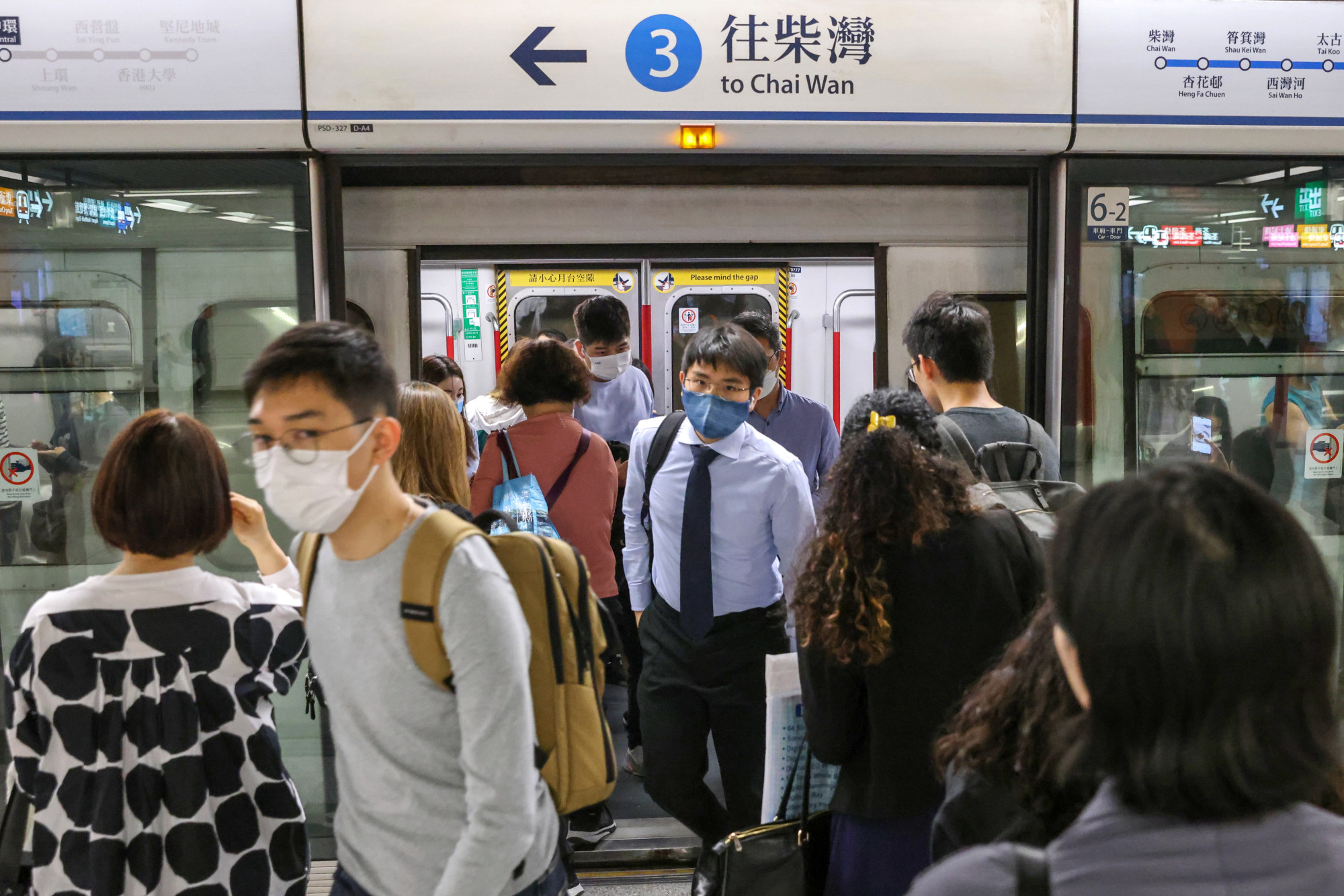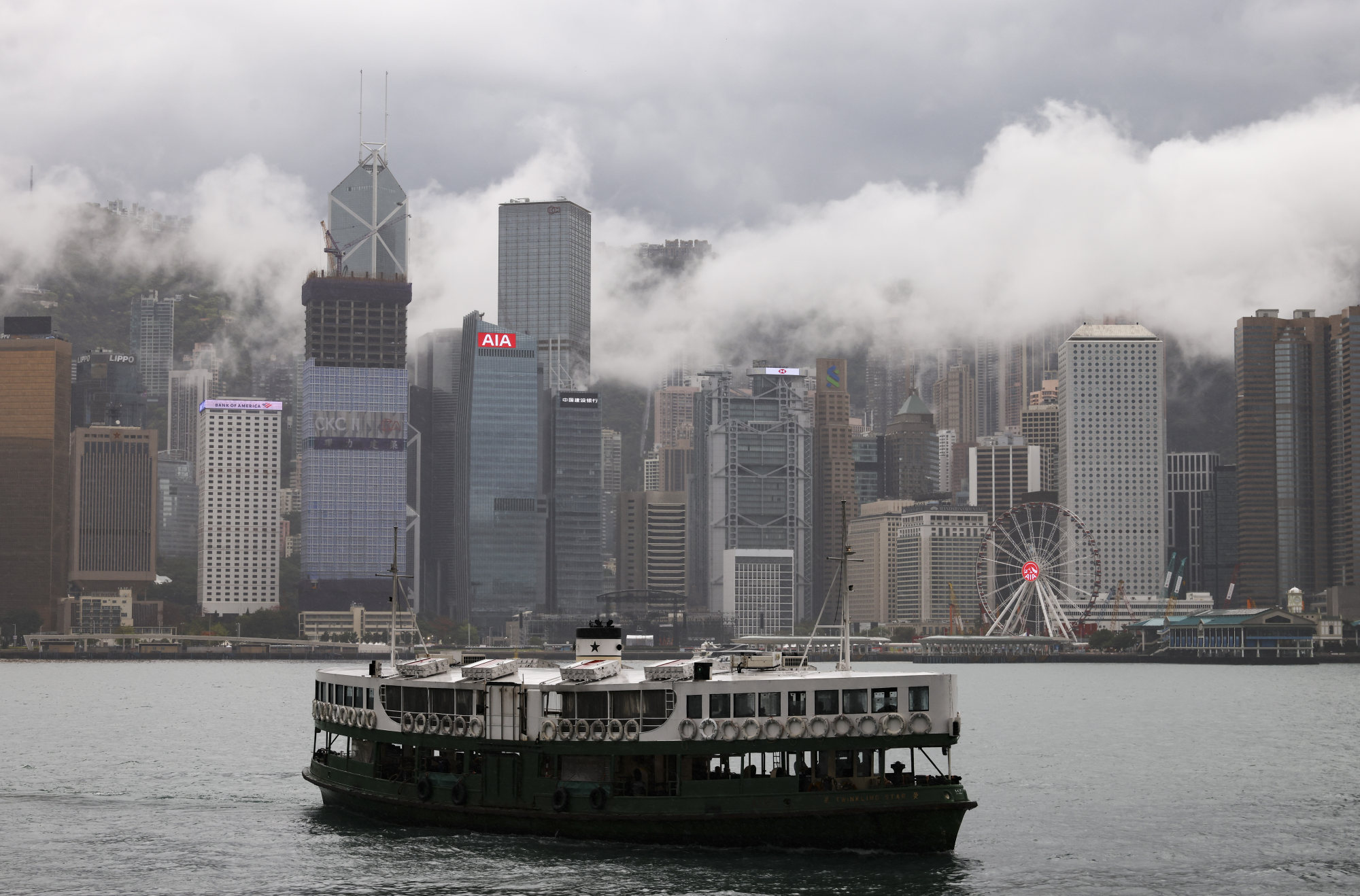
Hong Kong’s MTR Corporation to increase fares by 2.3 per cent in rail giant’s first ticket price rise in 4 years
- Rise is derived from a newly overhauled fare adjustment formula that is based largely on the inflation rate and a wage index for transport workers
- Fare increase means 90 per cent of MTR passengers will have to pay an extra 40 HK cents per trip at most
The rise was derived from a newly overhauled fare adjustment formula for the city’s sole railway operator that was based largely on the inflation rate and a wage index for transport workers in December. The year-on year inflation rate rose 2 per cent while wages jumped 3.6 per cent based on government data released on Tuesday.
The fare rise means 90 per cent of MTR passengers will have to pay an extra 40 HK cents per trip at most.
Hong Kong transport minister backs MTR Corp’s new fare adjustment mechanism
Like the broader community, the “MTR was hard hit by the continuous unprecedented challenges amid the pandemic over the past three years”, said Jeny Yeung Mei-chun, the MTR Corp’s Hong Kong transport services director.
“The newly reviewed fare adjustment mechanism and special arrangement have lowered the fare adjustment rate.
“Around 90 per cent of fares are expected to have an upwards adjustment of 40 cents or less this year, suitably balancing the public’s affordability and the corporation’s ability to continue to provide high-quality, reliable and efficient railway services to Hong Kong passengers.”
Toll rise of up to HK$10 at 2 Hong Kong cross-harbour tunnels from August 2
The rail firm said it would work out the updated fare table with the effective date announced later. It insisted that since the 2007 rail merger between the MTR Corp and the Kowloon-Canton Railway Corporation (KCRC), its average annual fare adjustment rate had been lower than year-on-year inflation.
The corporation also said from the fourth quarter this year, an interchange discount for passengers of green minibuses on more than 500 designated routes would be increased from 30 cents to 50 cents, and pledged to continue ongoing fare concessions, which were worth over HK$2.1 billion last year, to riders including the elderly, children and the disabled.

Under a renewed agreement last week between the MTR Corp and the government, its majority shareholder, the formula includes a subtraction “productivity factor” that will be linked to profits from the firm’s property development business, a major money earner.
The factor would be set between 0.6 and 0.8 percentage points, depending on the level of profits. The higher figure would apply when the MTR Corp made more than HK$10 billion (US$1.27 billion) in property development profits the previous year. The lower number would be used if profits dropped below HK$5 billion.
The rail giant posted an overall profit of HK$9.8 billion (US$1.25 billion) for 2022, up 2.9 per cent from the previous year.
Taking into account other adjustments, covering an increase of 3.35 per cent held over from previous years, a special 1.2 percentage point one-off deduction and a 1.85 percentage point rollover, fares will rise this year by 2.3 per cent.
MTR Corp property profits’ role in calculations as Hong Kong rail fares cut
The company only cut fares in the 2021 financial year amid the coronavirus pandemic, and last raised ticket prices in 2019, by 3.3 per cent.
Under the revamp, the rail operator will increase the maximum contribution it makes to a fare concession fund from HK$25 million to HK$40 million for every service disruption. A higher charge will apply if the disruption happens during peak hours, or lasts more than three hours.
A new arrangement for compensating passengers for those disruptions will also come into force.
Rather than a 3 per cent fare discount for every trip across a certain period under the previous mechanism, passengers will enjoy a 50 per cent cut in ticket prices across four weekend days. The next weekend rounds will be held in April and May.
How can you avoid new peak prices at Hong Kong’s cross-harbour tunnel tolls?
The MTR increase comes amid a wave of proposed toll and fare rises, sparking outrage among lawmakers and the community for what they said would aggravate the financial woes of residents who had been hard hit by the Covid-19 pandemic.
Other increases in the pipeline include a government proposal to raise the tolls of the Cross-Harbour Tunnel and Eastern Harbour Tunnel by HK$10 (US$1.27) from August 2 while Star Ferry fares will rise 56 per cent in April.
Five franchised bus operators earlier asked permission from the government to raise their fares, with Citybus hoping for a 50 per cent increase on its airport routes and KMB, which has the largest fleet in the city, seeking a 9.8 per cent rise.

Aaron Kei Chun-on, a spokesman for the MTR Fare Structure Concern Group, said the rise this year was mild but he expressed worries over an increase next year which would incorporate the rolled-over 1.85 per cent.
“I appreciate the fact that the MTR has introduced special measures to rein in fare increases when people are still hard hit by the pandemic,” he said.
“But the rail firm has only shifted the problem to next year by deferring a rise of 1.85 per cent. Next year, we may face a rail fare rise of at least 3.35 per cent which will worsen the public’s financial burden.”
Quentin Cheng Hin-kei, a spokesman for the commuter concern group Public Transport Research Team, said the revamped fare adjustment mechanism did not change the fundamental problem that a cut in ticket prices would be impossible as long as there was inflation that year.
Hong Kong is Asia’s most expensive city for business travellers for second year
“Since the MTR’s business has rebounded and it earned big money, the government should consider using its dividends worth billions of dollars every year to subsidise other transport operators such as buses and minibuses to curb their proposed fare rises,” he said.
Lawmaker Michael Tien Puk-sun, a former KCRC chairman, said he was dissatisfied with the revamped mechanism as only piecemeal changes were made without really taking into account the firm’s overall profitability.
“But I can see the MTR has tried to lower its entitled fare increases to ease public discontent,” he said.

